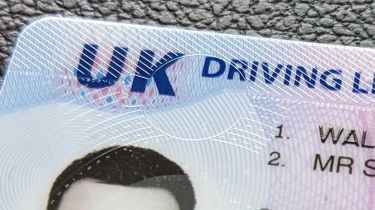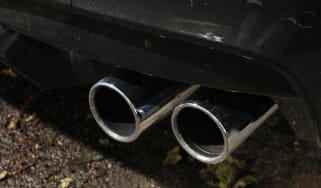Graduated driving licence calls grow as under 25s get 38% of dangerous driving endorsements
Young people are responsible for 38 per cent of dangerous driving endorsements, reigniting calls for a GDL scheme in the UK
Calls for the UK government to introduce a Graduated Driver’s Licence scheme have been renewed, following the release of new data which shows that almost two-fifths of dangerous driving endorsements come from those aged under 25.
A study by road safety charity IAM RoadSmart found that 38 per cent of DD40 (dangerous driving) endorsements in 2023 were handed out to those aged between 17-25, despite this age bracket accounting for only seven per cent of all licence holders.
In 2021, 1,585 DD40s were issued to young drivers, but this increased to 1,928 in 2023. While the two-year growth could be attributed to 2021’s Covid-19 lockdown and subsequent lower traffic numbers, the first half of 2024 has already resulted in 1,128 new endorsements for under-25s (38 per cent of all issued), signalling a growing problem.
IAM RoadSmart’s director of policy, Nicholas Lyse, called the new statistics “shocking” and told Auto Express that he believes the root cause is a “cultural” one.
“Many young people don’t take responsibility when they’re in charge of a one-or-more-tonne piece of metal and that comes with very tragic consequences,” Lyse said.
He explained how research shows that “statistically, [dangerous driving] is a bigger problem amongst younger men as their brains typically take longer to develop the idea of risk”.
This comes after another recent IAM RoadSmart study which revealed that roughly a third of drivers aged under 25 admit to filming themselves at the wheel for social media.
“There’s a responsibility on social media platforms to take this type of content down,” Lyse added. “In an age of artificial intelligence, it’s frustrating that this type of content isn’t removed within minutes.”
Such recklessness has prompted the charity to renew its calls for a Graduated Drivers Licence scheme. GDLs ultimately put restrictions on newer drivers in a bid to prevent accidents, such as regulating the ability to drive at night or carry young passengers, and enforcing a zero-alcohol limit for the first six- to-12 months of driving.
Such a scheme was proposed to parliament by a Labour MP before the General Election and drew support from across the House of Commons. But since then the related Motor Vehicles (Driving Licences) (New Drivers) Bill has yet to receive a second reading.
Calling the robustness of the current practical and theory driving tests “severely lacking”, Lyse told us that a GDL scheme, in addition to requiring a set number of driving hours before a learner takes their test, could be a multi-faceted way to solve the problem of the increasing number of young driver endorsements.
When asked whether such a scheme would penalise the many for the actions of the few and ultimately infringe the rights of young drivers, Lyse admitted that too many restrictions would “take emphasis away from driver training and skills development”.
Lyse also noted that logging hours driven at night – much like how flying hours are tracked for trainee pilots – could be a more balanced way forward and called for what he described as “better enforcement” from the police on the roads to ensure everyone’s safety.
Do you think a graduated driving license for young drivers is a good idea? Let us know in the comments...
Find a car with the experts










